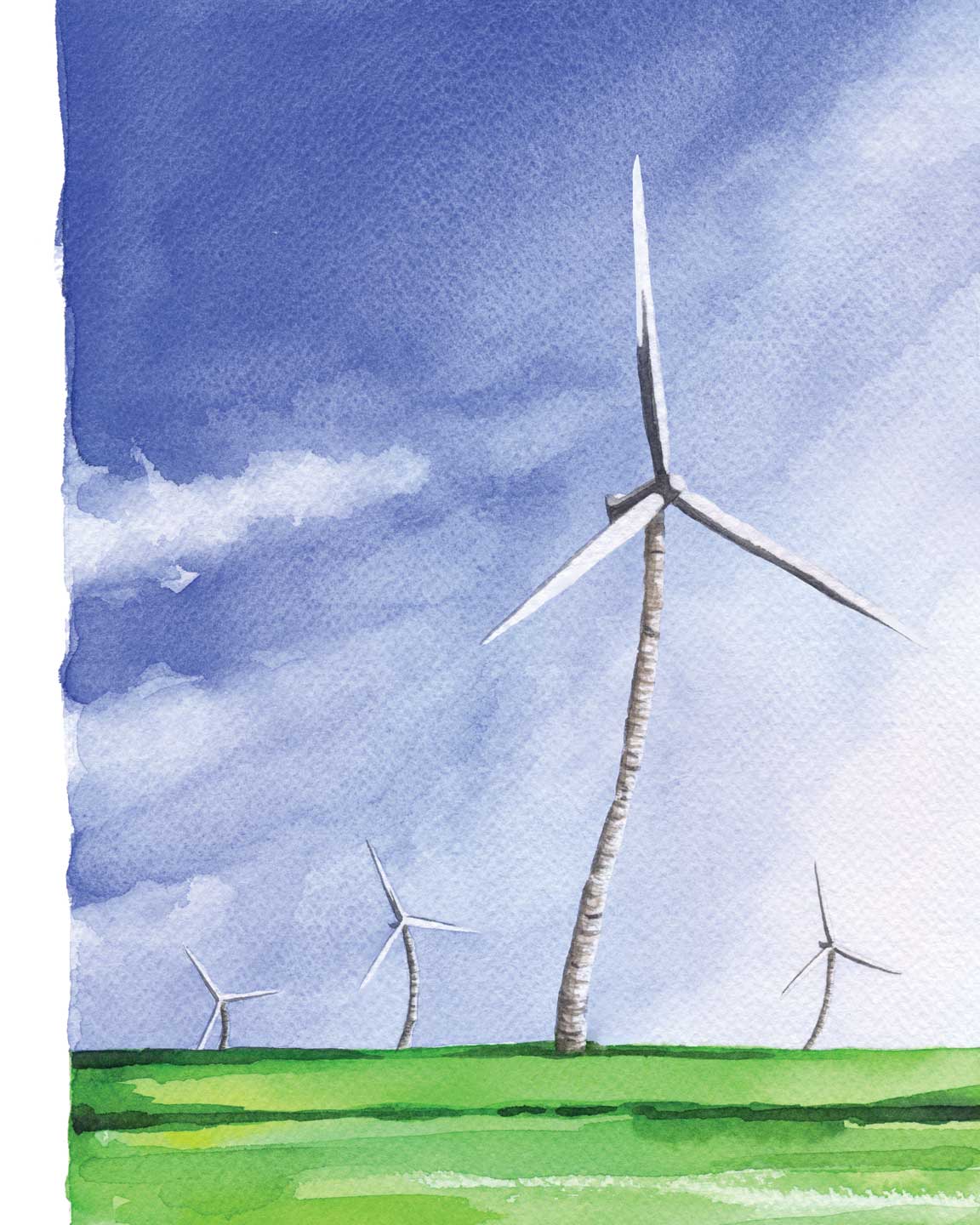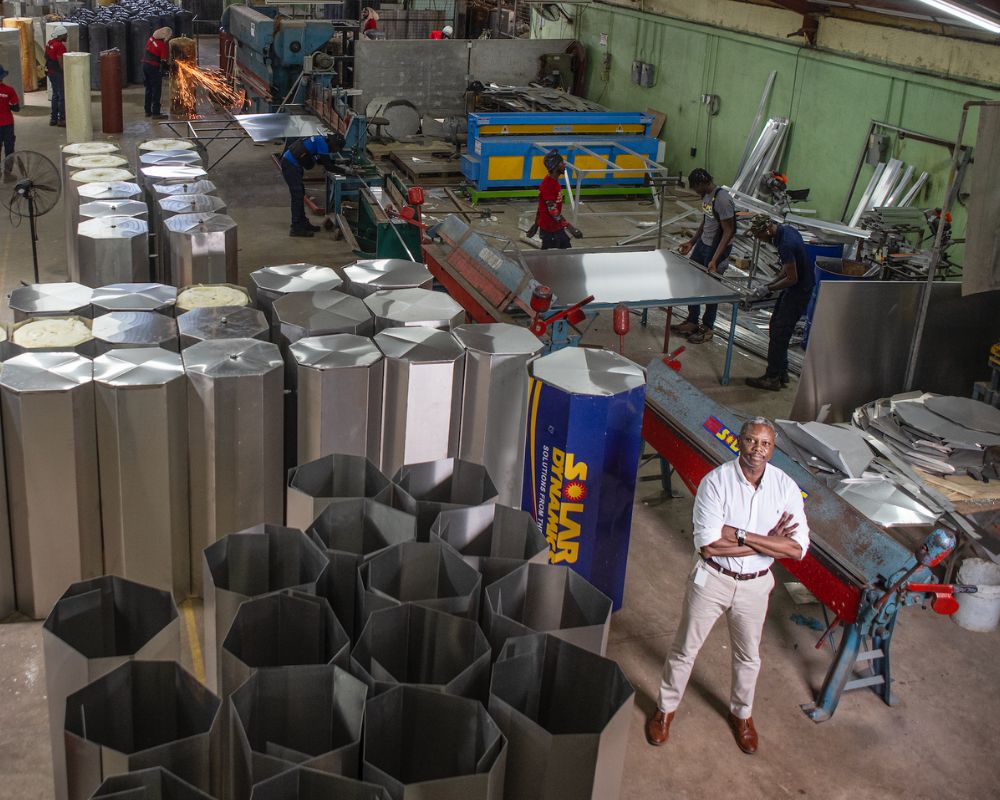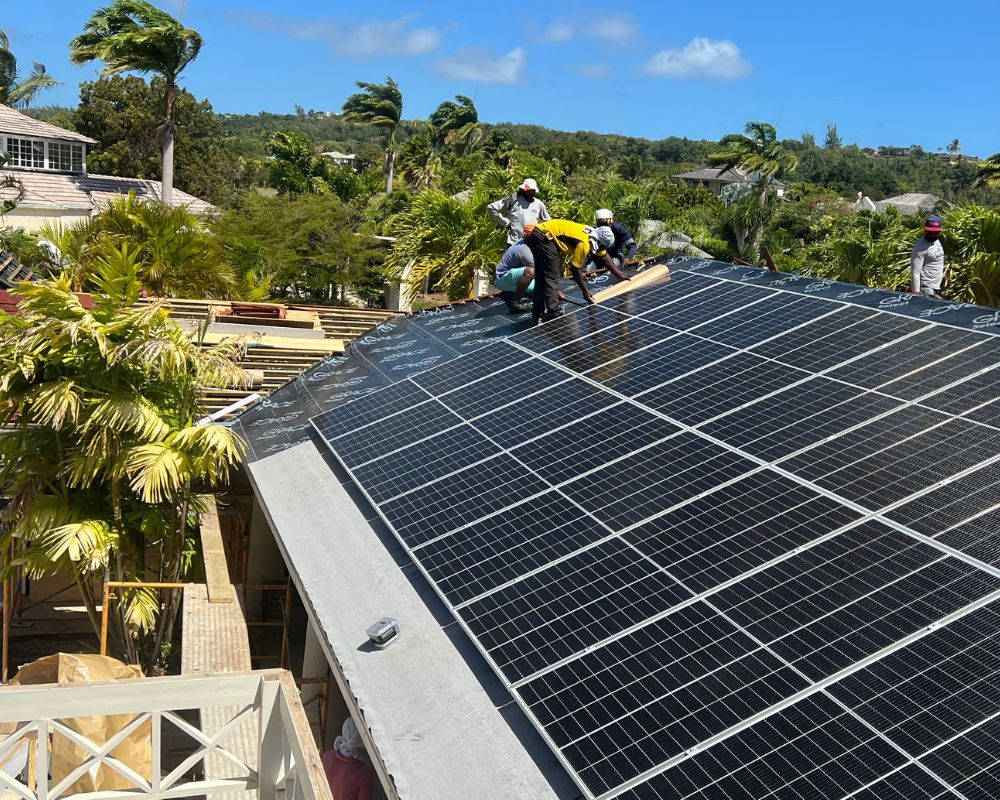
2020 will begin the third decade of the twenty-first century. From where we stand in the Ministry of Energy and Water Resources, we envisage that by the end of that decade Barbados will be shaped by forces which at this time we are only beginning to conceptualize.
This change will be influenced by Government’s vision to move the island to being 100% renewable and carbon neutral by 2030. To chart the energy destiny of the island, the Ministry of Energy and Water Resources has developed an energy policy and accompanying implementation plan. Together, these two documents articulate Government’s vision and provide a concise understanding of its philosophy in transforming the energy sector.
The Barbados National Energy Policy (BNEP) advances transformational goals for energy which include:
• Providing reliable, safe, affordable, sustainable, modern and climate friendly energy services to all residents and visitors.
• Zero domestic consumption of fossil fuels economy wide.
• Exporting all hydrocarbons produced both on land and offshore
• Maximising local participation (individual and corporate) in distributed renewable energy (RE) generation and storage (democratisation of energy).
• Minimising the outflow of foreign exchange.
• Creating a regional centre of excellence in RE research and development.
The Ministry recognises that these modern times require a more revolutionary approach to change; a need for a transformative shift in: the thinking that determines how we generate energy; who is able to generate power for our grid; what changes we need to make legislatively to facilitate the sharing of this energy space; and a working appreciation that the ways of the future will not resemble the static approach of the past. The energy industry will be a much more dynamic and creative space limited only by our imagination.
The expressed objectives and goals underpinning the policy will be supported with the legislative and regulatory changes necessary to advance the transformational changes that are required. Indeed the bold step to shift away from the century old monopoly business model used to produce electricity from fossil fuels to one that supports a decentralized system that supports an energy mix that utilizes renewable resources such as wind, solar, bio-mass and waste-to energy through a sustainable waste-management programme is inspirational. The BNEP has also identified energy efficiency measures that will result in a decrease in electricity consumption of 22 per cent.
In the foreseeable future, the utility’s role will be redefined and a new role as the “traffic cop” should evolve where it will be coordinating the changing load and flow patterns of electricity instead of functioning as a monopoly distributor of power coming from a few large plants. Indeed, central to facilitating the high penetration of renewable energy that is envisaged will be the need for the utility to “smart its grid”. “Smarting the grid” will require investment to allow it to integrate as much variable renewable energy as possible from very disparate points, facilitate the decentralization of the sector and facilitate the evolution of a modernised electricity market.
This vision sets the foundation to spur the generation of electricity from thousands of smaller systems owned by individuals and companies on rooftops and larger independent power producers (IPPs) to operate in the market. The utility will employ technology to manage the capacity on the grid and the demand from customers to ensure that there is always enough electricity and that it is delivered optimally, efficiently and affordably.
This policy recognizes that the “business as usual” state of producing electricity from fossil fuel continues to hurt the island economically and environmentally, and that we simply can no longer afford the cost of our fossil fuel addiction wither in real monetary terms or in the increasingly devastating effects of climate change. The innovations that have taken place with respect to renewable energy have given small island states like ours - blessed with an abundance of renewables – sun, sea, wind previously exploited mainly for tourism - the first real opportunity for energy security. Policy makers and business persons understand the implication for spurring economic growth.
With the continuous decline in the capital cost required to produce renewable energy, an economic opportunity for small economies such Barbados is at hand. This opportunity comes in the form of significant improvement of Barbados’ competitiveness with the advent of a substantial fall in the cost of energy that can be achieved from the correct application of renewable energy into the economic fabric of Barbados. Moreover, renewable energy can bring improved synergies that can reduce operating cost in several industries such as tourism, agriculture and manufacturing, while presenting a possible solution for waste management.
It is in this context that Government acknowledges that the revolution in the energy sector cannot be achieved without the input of all stakeholders and wide participation, and indeed buy-in, of the average Barbadian. This new reality brings with it investment opportunities, new expertise and skills, new learning, knowledge and employment.
Moreover, institutions of learning will have to re-think and upgrade their offerings to remain relevant and be responsive to the needs of the industry. New investment products will have to be developed by financial institutions to keep pace and fuel the innovations contemplated in the market place in order to sustain the transformation.
Fuelling this country from alternate sources of energy is not restricted only to the electricity sector. The transport sector is particularly integral to the transition, since a third of the imported oil is used by this sector. As such, opportunities for investment lie with respect to deployment of electric vehicles or hybrids. In the case of hybrids, a solution that will assist the country is the conversion of approximately 100,000 carbon consuming vehicles to be powered by alternative fuels. This will galvanise the powering of the transport sector from renewable sources and avert potential financial and environmental challenges relating to stranded assets and their disposal.
As Government takes the next steps on this journey, it is committed to ensuring that Barbadians are not left out. Embedded in the Barbados National Energy Policy is the promise to democratize the provision of energy, promote local investment, entrepreneurship and ownership.
The Barbados Energy Revolution is not only real it has begun.















